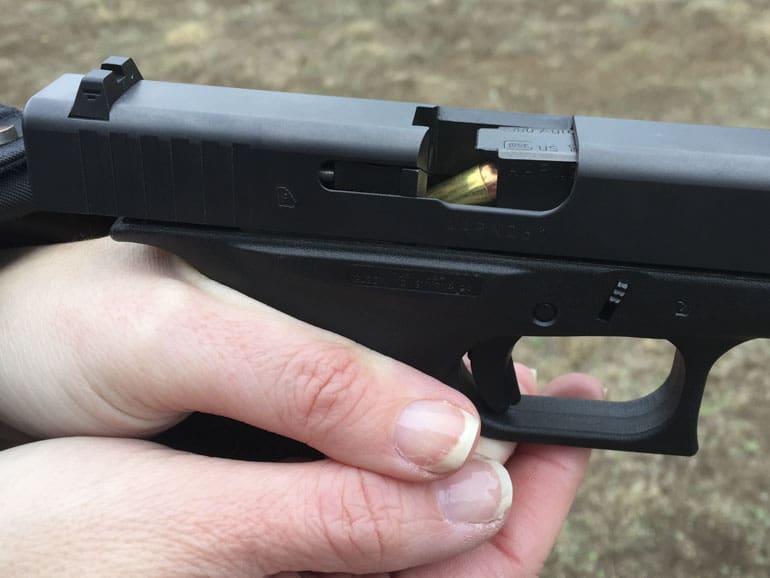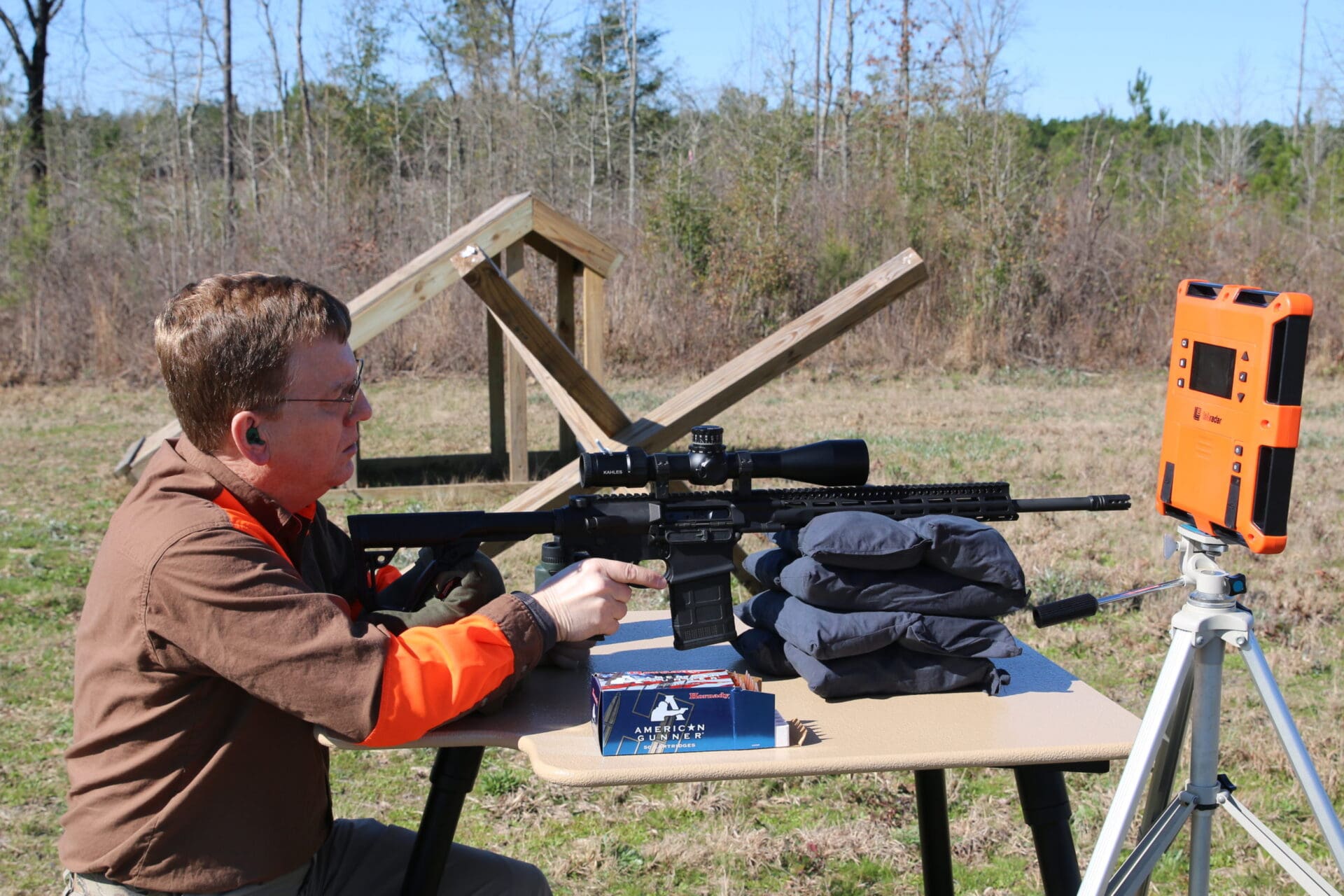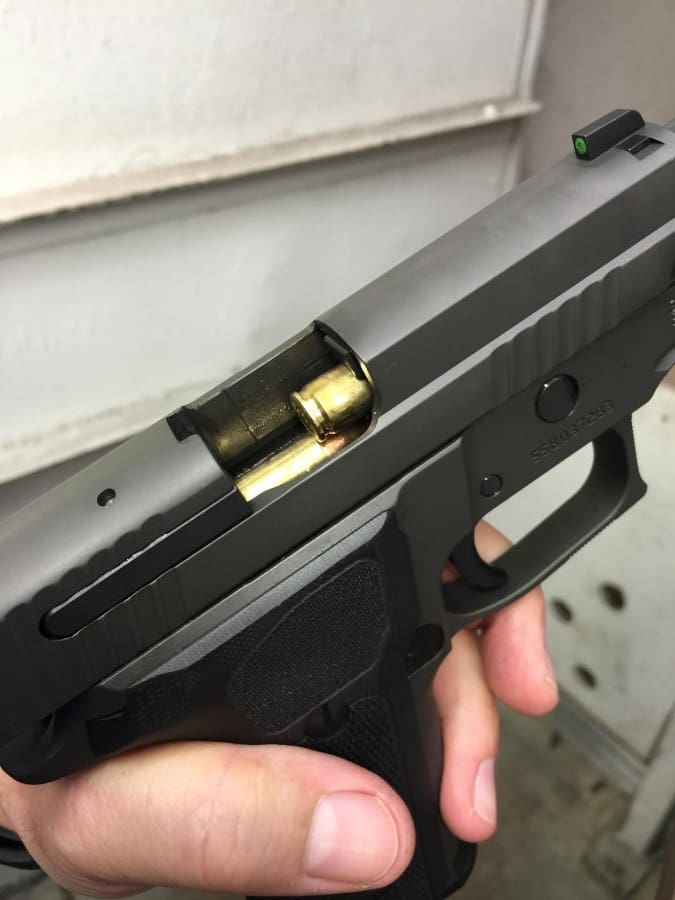
One of the criteria that some in the gun media as well as buyers use to judge a pistol is whether it digests a diverse array of ammunition. Brass case, steel case, multiple brands of FMJ, JHP maybe even flat-tops, JSP, hard cast and so on.
That’s a decent predictor of reliability, as a gun that reliably cycles lots of different kinds of ammunition will work well if you’re in a pinch and have to use a different brand or type than your usual stuff. That means you can expect the gun to run well to a greater degree than a gun that’s more finicky about what it’s fed.
Or is it? Is it really that realistic an indicator of reliability? Is that actually something that most people look for or should even worry about? There are a lot of first-time gun owners out there who wonder about that. Any sort of qualitative measurement of anything is going to have inherent flaws somewhere. The “multiple ammunition” criteria has some, too.
Remember that guns are machines. Simple machines, but machines all the same and like other machines, they function best within certain parameters. Car guys have their preferred brand of oil whether it’s Castrol GTX, Valvoline, Quaker State or whatever.
While lots of people think a gun should run whatever it’s fed, it’s advisable to take the time to find the brands and types of ammunition your gun likes best and shoots most accurately and stick with those.

For instance, my 1911 loves Remington UMC and Herter’s brass more than other brands of FMJ ammo, and Speer Gold Dot over other brands of JHP. Ergo, I buy UMC or Herter’s for practice and Gold Dot for everyday carry…and I leave it at that. If it ain’t broke, there’s no reason in the world to think about “fixing” it.
The gun industry doesn’t have (or seem to have) the sort of publicly available consumer survey information that so many other verticals do. Therefore, it’s difficult to determine for sure what brands of ammunition the gun-owning public uses most. However, what seems to be the case is that most people tend to find a brand or two that works well in their gun and they tend to stick to those.

Most gun owners will do almost all of the shooting they do in their lifetime on a gun range, and what people use most there is full metal jacket (FMJ) target ammunition. Most often, they’ll choose one of the cheaper versions available like Winchester white box, American Eagle, Herter’s, Blazer and so on.
Also keep in mind that when a semi-automatic gun has feeding problems, the magazine is most often the problem…not the ammunition.
Most gun stores carry a range of ammo to choose from. Very few only carry obscure surplus ammo that nobody’s sure about. In my experience — and your mileage will vary — shooting cheap(er) aluminum and steel cased stuff only saves about a dollar (maybe two) over Winchester White Box, Remington, or American Eagle.
In short, while it’s nice to have a gun that will shoot virtually anything, it isn’t critical. It’s more important to find the gun that’s right for you and will shoot at least some range and personal defense ammo really well.
Spend the money up front to buy a variety of different ammunition. Invest the time to try them out at the range, testing both function and accuracy. Even if you have a gun that will reliably cycle and shoot everything under sun, there will definitely be some brands and types that it shoots better than others. It’s well worth your time and money to find those.
In the end, if your gun fits you and you shoot it well — and you identify the types and brands that work best in it — what else really matters?




Yes. Next question.
When ammo availability is spotty your gun had better not be a diva.
Even with reloading picky guns can be an issue as guess which components tend to dry up first and get resupplied last.
Exactly, jwm. This article is an easy clickbait conversation starter.
Yes.
Yes, yes, yes.
Yes, the ammo matters. Yes, you should try several brands and run them through your gun. At least one full box of each, using the actual magazines you’ll carry. Once you land on the brand your gun seems to load, fire, & eject most reliably, shoot another 200 rds of that one to be sure. A reliable cartridge that will go bang when you need it is better than trying to figure out secondary concerns such as “JHP vs FMJ”.
if you’ve plenty of what she likes you’re gtg. luxury.
out scrounging? less particular sounds good.
Unless your self-defense needs can be fully taken care of by only the one round in the chamber of your gun, then ammo selection is irrelevant.
For the 99.99 percent of the rest of us, your gun better eat everything you feed it, without complaint… 🙁
Is it Really a Big Deal If a Gun is Particular About Ammunition?
Not on the range, after you finish with a few select words about the ammo ya just swap back to something the gun likes.
But for defense, it can be a really big deal.
If your only concealed carry pistol is picky about ammo and we hit yet another ammo shortage you might be stuck with FMJ which is a poor choice compared to hollow points. If your pistol is picky about FMJ dump it ASAP!
Break the edge on the top of the feeder ramp and buff it all until it shines! Will fix vast majority of feeding issues.
Break your gun in with 250 rounds, aside from wearing the metal in and smoothening it out, the recoil spring will soften making the pistol less finicky with lower pressure/velocity ammo brands. In some cases a customer reduced power spring can help.
i would rather the supplier reduce the spring power for me.
Yes, find a brand of ammo that your handgun, rifle carbine, shotgun likes. Then stockpile it. If it will shoot everything else consider yourself lucky.
Yup. After the Sandy Hook ammo drought, I did the math to figure out what I was going through in a year, and decided to keep two years’ worth of ammo on the shelf so I would still be able to shoot during the next ammo drought.
It was a good call. Was able to go to the range, didn’t pay scalper prices, and it really doesn’t take up that much space- ammo cans are stackable.
Queue the revolver fanboys and fangirls in … 3 … 2 … 1 …
My revolver is 100% reliable with any brand of ammo. Also with any caliber. In fact, it always go bang when I need it to, even when not loaded at all.
Sucks to be you, semi-auto losers.
👍👍👍👍👍
(One thumbs up for each chamber of my self defense revolver)
fankid…The article sorta centers around ammo quality. In the case of your revolver when encountering a failure to fire it is best to wait a good while before rotating the cylinder with your trigger finger. That is if you want to keep it.
now i want a revolver that is reliable chambering any caliber, wow!
Okay that was funny!
Hey there some of use “semi-auto” folks NEVER have to worry, none of my three are picky. “Why?” you may ask, well the answer is mine are Stars, two BMs (9mm) and a PD (.45acp), they’re pigs, they eat everything, brass, steel, aluminum case, from a multitude of manufacturers, haven’t had an issue yet. Like you I’m fond of and own revolvers, three of them, all .38 Specials.
Stars are solid performers. At least the ones that I have had contact with. My question is, what about spare parts? Is Star still in production?
Star is gone as a manufacturer but some new production parts are available from third party sources, there are still used and NOS parts out there. I recently purchased new production barrel links (Star BM) and a couple extra buffers (Star PD) and keep an extra firing pin and a few other pins and small parts on hand just in case.
Yes they are great guns, mine run well, never malfunction, fit my hand perfectly and for me it’s also sentimentality, an homage to mom and dad who used a Star “F” .22 to compete in a city pistol league in the 60’s-70’s (sadly the Star F is long gone).
Yep, operating a pistol with a high degree of reliability does require more effort, common sense, and a bit more intelligence than a revolver. Seems worth the effort to me.
Translation. If you don’t see my point of view you’re a dummy.
“Translation. If you don’t see my point of view you’re a dummy.”
And you doubt that? Anybody doubt that?
Anyone who doesn’t agree with me, on everything, should be permanently assigned to a road gang, making little rocks out of big rocks.
US. My gluck 19 has been 100% reliable with all brands and loadings. Because I have access to 1st world ammo sources. Dry those sources up? Will my gluck run well on a handloaded cartridge with black powder?
If I can get it in the chamber my revolvers will run on whatever crap ammo is around.
Which means nothing if you can predict that we will never see ‘Mad Max’ in this country.
Believe it or not all my lowly Taurus’ semiautomatics have been completely reliable. You gotta fluff n buff big time(I realize it ain’t a GLOCK© brand glock).
I don’t understand why people don’t realize that there is a place for both.
“I don’t understand why people don’t realize that there is a place for both.”
Because I am superior to you, and make superior choices. If you don’t adopt my choices, you are inferior and need to get your mind right.
Das rite! Revolvers rock. Can eat anything. Don’t drop brass. Better performance. Only 6 rounds?? Big deal. Not likely to need more than 3 or 4, and if you do, good cover and speed loaders solve that problem.
Performance over capacity.
Johnny LeBlanc,
Only 6 rounds?? Big deal. Not likely to need more than 3 or 4, and if you do,
good cover and speed loadersa New York reload will solve that problem.There, fixed that for you!
My revolvers eat up anything I feed them and spit out the pits. That said, I’ve never heard so much as a burb out of a Beretta at the dinner table. Including the Uberti.
Yes mags can be a problem which is why disassembly and eliminating any friction points is the out of the box procedure for most mags, by their reputation for failure some .308 mags will need better springs like those from Wolff.
The same maintainence holds true for most firearms which innards are like clockwork that must mesh freely until lockup where a tilting barrel should not twist, move or upset POA, the barrel must also unlock easily. If the firearm is in good order it should run on practice ammo just like the good stuff.
we all knew from the headline
that this was going to be a 1911 article
it only took 6 paragraphs to get there
right on man
right on
Funny, I was looking for that too.
I prefer that my pistols that are for self defense purposes be reliable with a wide range of ammo. As others have said most of us have experienced ammo shortages that lasted quite a while with near zero or very limited availability.
That said if you know your firearm likes certain self defense ammo and have a good supply of it you probably will be fine as most of us will never need thousands of rounds of expensive self defense ammo but just having a partial box of it may not cut it. Still we should practice regularly and keeping a decent supply of range ammo is a good idea also IMHO.
My Glock 19 has yet to see any ammo it does not like and I have had it since the early 90s.
Also maintenance is important. I have seen more failures due to lack of lubrication than anything else especially with metal frame pistols. Cleaning your self defense firearms on occasion is a good idea too. Crud can certainly build up over time and get behind the extractor, etc and cause problems. While I don’t clean my firearms after every range trip I keep a close eye on if they are going to need it as I also inspect/do lubrication.
My old Gen 3 gluk has eaten everything and much of that was all-lead semi wadcutters and I never had a problem. For years I’d go to the range twice a week and shoot 100 rounds of the club reloads after work. I think they charged $5 for a baggie of 50 9mm reloads back then. I can’t even remember a jam in thousands of rounds. I did clean the bore after every session. I never saw any significant lead buildup on the fancy rifling
Nice, my Glock 19 is Gen 2 and all original parts except change RSA and have gripforce adapter on it to make my larger hands fit it better. I carry it often.
quote————While lots of people think a gun should run whatever it’s fed, it’s advisable to take the time to find the brands and types of ammunition your gun likes best and shoots most accurately and stick with those.——–quote
A laughable and ridiculous statement as the horrendous price of ammo these days makes it all but impossible for the working man to start throwing his money down the drain experimenting with dozens of brands of ammo.
Lets face facts if you buy a junk gun don’t expect it to run with any type of ammo. When you pay less expect less and your stating your life is worth less as well.
And as usual the Jackboots a T Tag will trash my post and the 1st Amendment. They are the very people who are too dangerous to be permitted to own weapons.
Rights denying fascist that you are I will spell it out for you.
You do not get to decide who can or cannot own a gun.
Ah, yes, dacian the demented dipsh*t trots out his ignorance and lack of familiarity with firearms once again. It might interest you to know, dacian the demented, that several VERY high-end precision and/or competition firearms are known for being ‘ammunition picky’, BECAUSE of their very tight tolerances . . . but you’re too stupid to understand that, so we forgive you (nah, actually, we don’t, but we’ll cut you some slack BECAUSE you’re stupid. And a liar. And an ignoranus).
Cheap guns can, of course, be very finicky. They can also be (the Kalashnikov, for example) nearly omnivorous) . . . because they are built loose and sloppy.
Please trot of to your evening circle jerk with MajorLiar, and leave serious discussions to the adults in the room. You remain too stupid to insult.
That is horrible advice! A gun that you may have to bet your life on had better not be picky about what its fed. The most important criteria is absolute reliability or as close to that as possible!
Making excuses for poorly built weapons and outdated relics
When there are so many highly reliable guns out there, at most price points, why would you want anything else?